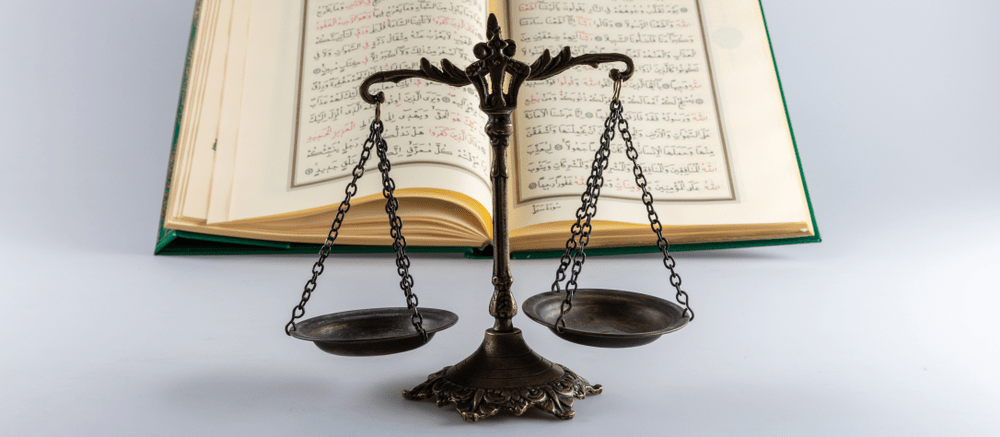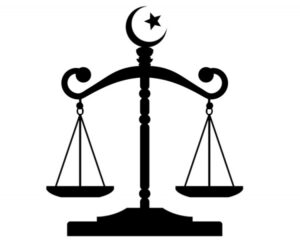Table of Contents
Introduction
The right to dower is an inherent right of every Muslim wife. But, unless this right is effectively enforced, it is of no use to her. Under Muslim law, following means of enforcement of the right to dower are available to a wife (or widow).
Rights & Remedies Of Wife For Non Payment Of Dower
Muslim Law confers upon a wife or widow the following 3 rights to compel payment of her dower:
- Refusal to Cohabit.
- Right to Dower as a Debt.
- Right to Retain her Deceased Husband’s Property.
Refusal To Cohabit
Under Muslim law, wife has a right to refuse to live with her husband when the amount of prompt dower is not paid, if the marriage has not been consummated.
If the wife is a minor or a lunatic then her guardians can refuse to send her to her matrimonial home until the payment of prompt dower is done and during that time husband is bound to maintain his wife.
Thus, Right of cohabitation does not accrue to the husband at all until he has paid the prompt dower.
In Sheikh Abdool Shukkoar v.s.Raheem-oon-mssa, (1874) it was held that “a suit will not lie by a Muhammadan to enforce the return of his wife to his house, even after consummation with consent, until her prompt dower has been paid.”
However, Right of dower does not precede the right of cohabitation which the contract of marriage necessarily involves, but that the two rights come into existence simultaneously and by reason of the same incident of law.
Similarly, In Abdul Kadir vs Saklima (1886), when dower is deferred and is payable at a future date or on the contingency of an event, and there is no other contract to the contrary.
Issue Raised was whether she can refuse the husband his conjugal rights or whether her guardian can detain her till it is paid?
Abu Yusuf is of opinion that she can but according to Imam Muhammad and the Shia Law, she cannot have such option of denial in cases of deferred dower, and it appears from the decision of Mahmood J. in Abdul Kadir v. Salima that the latter opinion has been followed in India.
He further stated that “Marriage gives birth to the right of cohabitation not only in favor of the husband but also in favor of the wife and If the payment of dower were a condition precedent to the initiation of the right of cohabitation, a Muhammadan wife, having quarreled with her husband, could not sue him for cohabitation till she had in a previous litigation sued and, obtaining a decree, realized her dower, because, ex hypothesi, her right of cohabitation with her husband would be dependent for its coming into existence upon the payment of her dower.”
Right To Dower as a Debt
Dower is an unsecured debt which the wife or widow, or divorcee, can recover from her husband, when alive, or from his estate when dead. Not merely the widow has the right to recover the dower-debt, but, on her death, her heirs, too, can recover it. Similarly, the dower-debt can be recovered not only from the husband, but also, after his death, from his heirs.
Also, Heirs of a deceased husband are not personally liable for the payment of dower debt; they are liable to the extent in which they inherit the property of the deceased. If the property of the deceased husband is already in the possession of the widow, then the other heirs of the deceased are entitled to recover their shares according to the payment of the debt proportionate to their shares.
In Kapoor Chand v. Kadar-unnissa,’ the Supreme Court laid down the following three propositions:
- The widow is like any other creditor of the husband and cannot, therefore, claim any priority for the dower-debt over other creditors,
- The widow’s claim for dower-debt has priority over the claim of heirs (but it seems, if she omits to put up her claim for dower and allows a person to take the amount of his legacy from the estate of the deceased husband, she cannot afterwards retract her assent), and
- The heirs of the deceased husband are not personally liable for the dower-debt of the widow; the amount can be realized ratably from their share in the estate.
Question Arises
Whether a widow in possession of her husband’s estate in lieu of her claim for dower with the consent of the other heirs or otherwise is entitled to priority as against his other unsecured creditors?
Reference was made to a text in Sur-ai-Nissa which enjoins ” A husband to pay the claim of his wife and it also says that widows and minors should be given favorable treatment.”
This text does not give an absolute protection to the claim of the widow as against other claims. On the other hand, a Muslim is enjoined to observe his engagements and to keep his contracts faithfully and to discharge his liabilities in an honest manner. No distinction has been made between the payment of dower and payment of the other debts on the other
Similarly, Fatwa-e-Alamgiri says that the funeral expenses of the deceased should be paid out of the estate and that having been done, the estate should be divided between the legatees and the heirs after payment of the debts due from him.
Thus, No priority has been indicated in respect of a dower debt of a widow over other unsecured creditors even if she has taken possession of her husband’s estate after his death.
Ordinarily, the dower is not a charge on the property of the husband, though one may be created by agreement, or by a decree of a court.
However Mulla opines that, although, it is within the competence of the court to create a charge, it should not ordinarily do so, as thereby the dower-debt gets priority over the debt of other creditors, and he, therefore, suggests that what the court should do, is to pass a simple money decree.
In Hamira Bibi v. Zubaida Bibi, it was observed that dower ranks as a debt and the wife is entitled along with the other creditors to have it satisfied on the death of the husband out of his estate. Her right, however, is no greater than that of any other unsecured creditor
Thus, there is nothing repugnant or inequitable according to the principles of Muhammadan Law in the estate of a deceased Muslim being rateably distributed between the unsecured creditors.
Right To Retain Possession In Lieu Of Unpaid Dower
After the death of a husband the most effective method of enforcement of dower is the exercise of the Right of Retention. A widow, whose dower remains unpaid, has a right to retain the properties of the husband till her dower debt is satisfied.
This right is termed as the right of retention in lieu of unpaid dower and it is available to a widow, whether there is any agreement between the parties for this right or not.
Under this right if a wife has taken possession of her husband’s properties lawfully (with free consent of the husband & without force) in lieu of unpaid dower, then she is entitled to retain that possession after the death of her husband, until her dower is paid out of the properties retained by her.
This right is exercised against the creditors, if any, of her deceased husband, and his legal heirs. The legal heirs of the husband cannot get possession (and benefit) of the properties of the deceased until they make payments towards unpaid dower in proportion of their respective shares.
Thus, this may be said to be a coercive method of recovery of unpaid dower from husband’s legal heirs.
However, this right of retention does not give her any title to the property; therefore she cannot alienate the property. The right to retain possession of the husband’s estate till payment of dower also arises after divorce. In no case it arises during the continuance of marriage.
Features Of Right To Retain Possession are
- No Right of Retention During Continuance of Marriage.
The right comes into existence only after the death of her husband, or if the marriage is dissolved by divorce, immediately on such divorce, but not before.
Thus, if a creditor of the husband obtains a decree against him and the husband’s property is sold in execution of such decree in his lifetime, the wife has no right of retention against a purchaser in execution of the decree and she must deliver possession to him.
- Actual Possession
The right of retention means the right to continue in the possession of the husband’s property after termination of marriage (either by Divorce or by Death) until the satisfaction of the dower debt.
It is, therefore, necessary for the exercise of this right that the wife or widow must be in actual possession of the property at the time of the termination of marriage. If she was not in actual possession of the property at this time, she cannot afterwards acquire possession of the husband’s property in lieu of this right.
- No Fraud
It is also necessary that the wife should have obtained possession of the property lawfully and without force or fraud.
In Babee Bachun v Hamid Husain, it was held that “the possession of the husband‘s estate should have been acquired by the wife without force or fraud, that is, it should be peacefully and lawfully acquired.”
- The right of retention is not analogous to a mortgage.
It means that the woman must have no interest in the property, as the mortgagee has under ordinary mortgage. There is no true analogy between her right of retention and mortgage.
In the case of a mortgage, the mortgagee retains possession under an agreement between him and the mortgagor, while her right or retention does not arise from any such agreement but is conferred on her by law, constituting a charge on the property.
- Right of retention is not a Charge
The right does not constitute a charge on the property and as such she is not a secured creditor.
If the property has been mortgaged by her deceased husband, the mortgagee can sell it irrespective of her right of retention in lieu of unpaid dower and can oust the property from her Possession.
- A possessory lien on property is no title.
It means that:
- Wife or Widow can only satisfy her claim for dower with the rents and profits accruing from the property.
- The right of retention does not give her any title to the property. The title to the property is in the heirs.
- She cannot alienate the property by sale or mortgage to satisfy her dower. If she alienates the property, it is valid to the extent of her own share and not of the shares of other heirs of her husband.
Example– Her dower is Debt for 600rs and she got 1000s after alienating the property then she is entitled to only 600 rs only and the rest will go to heirs
- If the widow is dispossessed by the heirs or their transferees, she can recover possession only by instituting a suit under Section 9 of the Specific Relief Act, that too within 6 months of dispossession, failing which she would lose her right to recover possession.
- In case she is dispossessed by a trespasser, she can sue within 12 years under Article 12 of the Indian Limitation Act.
In Meer Meher Ally v. Mst. Amanee, it was said that “the lien of the widow over the property in her possession is not a lien in the ordinary legal sense of the term and that a claim for dower is in the same position as that of any other ordinary creditor and ranks Pari Passu with them and like other debts has to be paid before the heirs are entitled to take anything.”
- Widow in possession liable to account.
A widow in possession of her husband’s estate is bound to account other heirs of her husband for rents and profits received by her out of the estate, and she is herself entitled to charge interest on the dower due to her and to set it off against the net profits.
It was held in Shaikh Salima’s case, that ” A Widow in possession of her husband’s property in lieu of dower debt is liable to account to other sharers of income from such property, in her possession”.
- Can sue heirs.
The widow is not disentitled to sue her husband’s heirs for the recovery of her dower out of his assets on the ground that she is retaining the property.
- The right of retention whether heritable or transferable.
There is a conflict of judicial opinions whether the widow’s right to hold possession is transferable and heritable.
In the case of Hadi Ali vs Akbar Ali, 1898,
“One view is that the right to retention is a personal right and is not a lien, therefore it cannot be transferred through sale, gift or otherwise and it cannot be transferred to the widow’s heirs on her death.”
However, in Hussain vs Rahim Khan,1951, Mysore High Court held that “the right to retention is both heritable and transferable as the right to retention can be exercised by the heirs of the widow on her death.”
Common Ground was reached in Maina Bibi vs Chaudhary Vakil Ahmed (1925) court opined that “All that can now be said with certainty, is that the right to hold possession is heritable. Though it cannot be said with certainty whether it is transferable, the balance of authority in India is in favor of the view that it is also transferable.
Thus, the right to hold possession cannot be severed from the dower-debt and transferred as a separate interest.”
Conclusion
In conclusion, Islam has raised the position of muslim womens in society by making a slew of rules designed to safeguard them and make sure that they live respectable and dignified lives. Dower is needed in Islam, no matter whether or not the wedding document specifies it or not. A dower may be specific or specific and appropriate. If dower rights don’t seem to be paid now when wedding, they become due once the wedding ends, whether or not through divorce or the husband’s death.
In the words of the Supreme Court, “Dower is a Mark of Respect and no woman should be deprived of her respect”.



